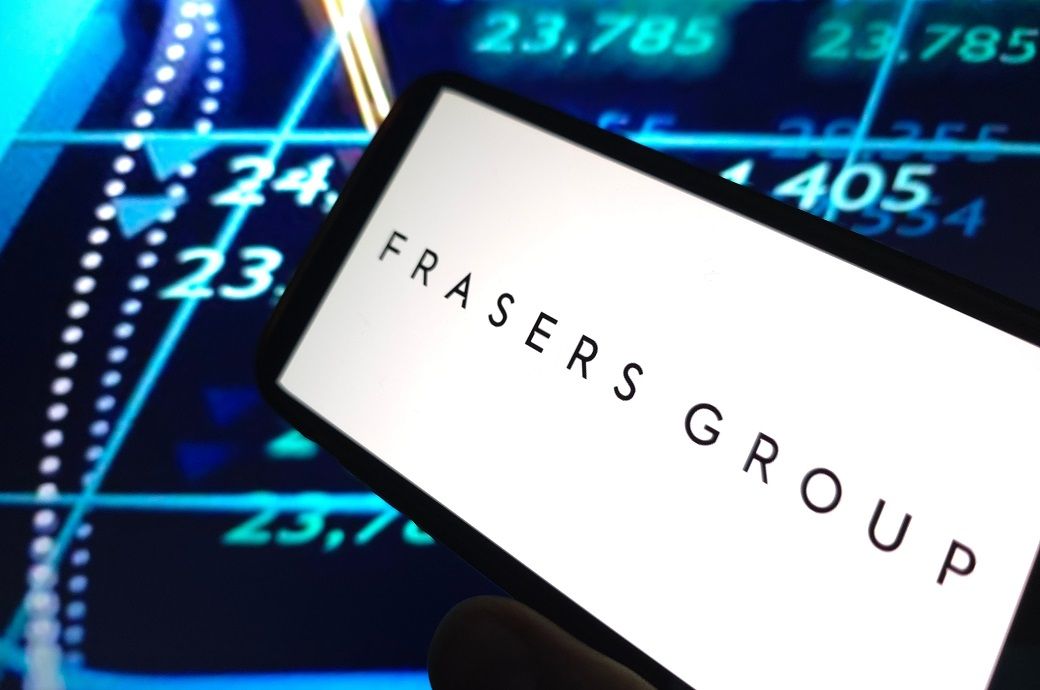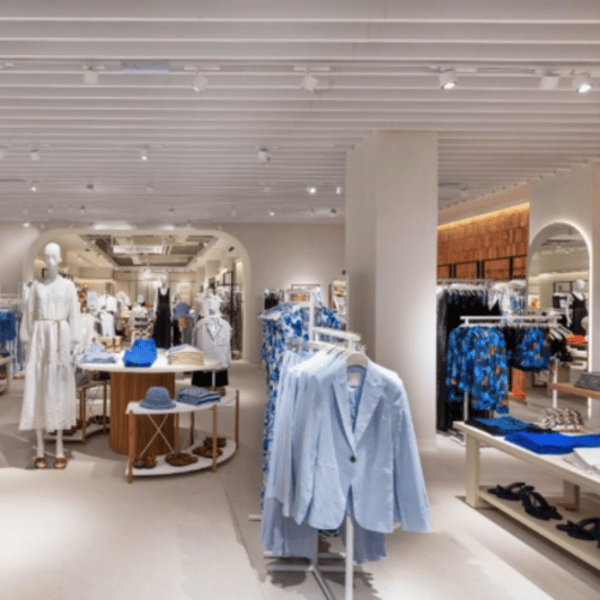Subscribe to The Frayed Edge by Sarah Kent, a weekly newsletter on how to build a cleaner, fairer fashion system.
Hi and happy Friday!
This week, there’s been some deep political intrigue. Don’t worry, I’ve been following along so you don’t have to.
First up, Europe’s regulatory rollback is gaining steam, with lawmakers signing off on plans to water down a duo of landmark sustainability rules. The rationale is that the region’s expanding red tape around environmental reporting and supply-chain monitoring is hurting competitiveness — and politics is very much in a “business first” era.
There’s lots of negotiating still to run and several fashion initiatives and brands have publicly called on politicians to hold the line. This kind of rule-making doesn’t hurt businesses, it levels the playing field for European companies that want to act responsibly, they argue. It still looks like deregulation is the name of the game though.
It’s a vibe that’s seeping into the conversation around Italy’s supply-chain scandals as well. This week there’s been a flurry of moves to shift the conversation away from what’s wrong and towards a greater focus on protecting the value of “Made in Italy.”
Unfortunately, news of a deadly factory fire in Bangladesh served as a timely reminder of why all of this really matters. While huge strides have been made to improve safety standards in the country, most of those have focussed on formalised, export-oriented manufacturers. This blaze took place in a workshop that appears not to have been covered by any of the industry’s initiatives.
The Bangladesh Garment Manufacturers and Exporters Association has called on local authorities to strengthen oversight and toughen up enforcement measures against illegal operators.
As always, send me thoughts, feedback, tips and questions.
Drill, Baby, Drill. But Make it Fashion.
For most of this year, European Union lawmakers have been debating what to do with landmark regulations intended to make big businesses more accountable for their links to environmental and labour abuses.
Increasingly, it looks like they’re just going to throw in the towel.
Earlier this week, the EU Parliament’s Committee on Legal Affairs signed off on proposals to significantly water down measures that would require companies to regularly report on their impact and make them responsible for violations in their supply chains.
As currently written, the rules would only apply to very big companies and civil liability for supply-chain failings have been dropped. There’s still a bunch of negotiating that needs to happen before a final text is settled, but it seems unlikely that things will get tightened up again. On the contrary, there’s mounting pressure to ditch the rules altogether.
For brands in fashion and other industries, it’s sort of like saying drill, baby, drill, consequences be damned.
Why is this happening?
After years of driving a climate-friendly agenda, the political consensus backing green policies in Europe has fractured. A rightward shift in Parliament following elections last year has led to a more pro-business approach. Reducing regulatory red tape and improving industrial competitiveness have become core priorities. The Trump administration has also leaned on European leaders to join America’s deregulatory bonanza as part of trade negotiations.
If you feel like you’ve heard all this before, that’s because the regulatory process is a drag — Europe’s is particularly Byzantine — and this whole debate is rehashing a series of policy decisions that were meant to have already been settled.
But now the rubber’s hitting the road. It particularly matters because, for a long time, Europe was leading the charge in setting baseline expectations for companies to get with the programme on climate action and responsible labour practices. To be sure, regulatory pressure on the industry hasn’t totally gone away, but momentum has certainly slowed.
Some in the fashion sector have sounded the alarm on this regulatory rollback. Sustainability-focused initiatives including Cascale and the Fair Labor Association signed a somewhat vague joint statement in September calling on the EU to ensure any simplification efforts still advance responsible business practices. Companies including H&M Group and Brazilian beauty giant Natura joined nearly 500 other signatories in calling on Europe to preserve the substance of its regulatory ambitions earlier this month.
“By promoting transparency and responsible business conduct, these rules are conducive to competitiveness and growth, as well as long-term value creation and subsequent returns for investors,” the statement said. “Companies that implement EU sustainability rules are likely to be more resilient, better prepared for sustainability-related challenges and opportunities, and more capable of communicating these factors to investors and other financial stakeholders.”
Businesses lobbying against the regulation have a plainer, simpler message: just drop it.
Meanwhile…
Not to be a Debbie Downer, but while regulatory momentum is in reverse, things are not going well for the planet.
Man-made and wildfire-related carbon emissions rose again last year to record highs, while the Earth’s ability to absorb the planet-warming gas diminished, according to the UN’s World Meteorological Organisation, which published its annual report on greenhouse gas pollution Wednesday.
The heat trapped by CO2 and other greenhouse gases is turbo-charging our climate and leading to more extreme weather. Reducing emissions is therefore essential not just for our climate but also for our economic security and community well-being.
— World Meteorological Organisation deputy secretary general Ko Barret
Luxury’s Sweatshop Scandal Gets Political

Italy’s reputation as fashion’s most elite manufacturing hub has taken a beating over the last couple of years. That’s largely thanks to a series of dogged investigations led by Milanese prosecutor Paolo Storari, revealing links between some of luxury’s most prestigious brands and sweatshop labour.
Executives and politicians are over it.
Things kicked off last Friday, when Tod’s chairman Diego Della Valle held an impromptu and fiery press conference in which he downplayed luxury’s supply-chain risks, slammed Storari’s approach and questioned his motives.
“Before saying such serious things, you need to really have your facts straight,” Della Valle said. “To talk carelessly about trivial things as if we were real criminals — in my opinion, that’s something to be ashamed of.”
At stake is “Made in Italy’s” good name; something that should not be treated trivially, the executive added. “It represents one of our country’s great strengths and one of the most competitive marks of excellence in the world,” he said.
That got some high-level attention.
The head of the country’s Ministry of Business and Made in Italy (yes, it’s a big enough deal that there is a whole national ministry dedicated to Italian manufacturing) spoke to Della Valle over the weekend to reassure him the sector’s reputation would be protected.
On Tuesday, the Ministry announced a package of amendments to a bill already on the table that would introduce a national, but voluntary system of supply-chain certification. An emergency roundtable with fashion’s main industry associations held Wednesday concluded that further measures would be taken to combat external threats posed by the rise of ultra-fast-fashion businesses like Shein and Temu.
“The Italian system stands united in protecting and defending ‘Made in Italy’ fashion, [which is] currently under serious attack on both domestic and international markets,” Minister Adolfo Urso said in a statement.
The Backlash to the Backlash
I’m sure you’ve clocked that there’s a bit of bait and switch going on here. It’s not entirely clear how the challenges posed by ultra-fast fashion relate to the luxury sector’s failure to effectively police its supply chains. Nor does it follow that a voluntary system of checks mandated by the government is likely to prove more effective than the voluntary system of checks the brands say they already have in place.
Italy’s unions, labour groups and opposition politicians have been swift to call out the political maneuvering.
The government “has offered a veritable shield to irresponsible business models,” Alessandro Genovesi, the head of inclusive bargaining, procurement and the fight against undeclared work at The Italian General Confederation of Labour, a major national union, said in a statement, criticising proposed legislative amendments that he said effectively absolve brands of responsibility for what happens in their supply chains.
“It is not ‘Made in Italy’ that is under attack, but the rights and dignity of the people who make it possible,” Abiti Puliti, the Italian branch of labour rights advocacy group Clean Clothes Campaign wrote Thursday. “If the response to the judicial action — which is exposing a system of structural exploitation — is to close trade borders, the problem remains within our own borders.”
The situation has also elicited some unusually frank responses — and a healthy dose of side eye — from industry insiders.
“It’s been easy to blame all the sector’s ills on affordable fashion, but the luxury brands, with much smaller supply chains and far higher margins find auditing and traceability too hard?? Pplleeeaaasseeee,” Peter Ford, a former sustainability lead at H&M, commented on LinkedIn.
What’s next?
The luxury sector would really, really, really like these issues to just go away, but it feels as if the political fight is just beginning.
We’ll have more on where the industry stands next week, ahead of a big sustainable fashion conference in Venice. Our new Milan correspondent, Eric Sylvers, will be on the ground, so if you’re there, say hi.
Funnily enough, the first time Eric and I worked together was covering another big Italian scandal — a major corruption case against the oil giant Eni. That’s also been back in the news this week amid allegations that the lead prosecutors withheld evidence. Anti-corruption campaigners have said the whole thing is a politically motivated attack. I’m not going to lie, the parallels are a bit uncanny.
A Deadly Fire in Bangladesh

A fire at a garment factory in Bangladesh on Tuesday killed 16 people and severely injured several more, a painful echo of deadly disasters at the start of the 2010s that helped spur greater action to clean up fashion’s supply chains.
Those efforts may now be in retreat (see above), but risks still remain despite marked improvements over the last 15 years.
Toxic gas from a neighbouring chemicals warehouse that was also caught in this week’s blaze and a locked door that barred access to the roof were responsible for most of the deaths, according to local fire officials.
Bangladesh is one of the world’s largest apparel manufacturing hubs and concerted efforts to improve building integrity and fire controls have made a meaningful impact over the last decade. However, these have largely focused on Bangladesh’s formalised, export-oriented factories. Many small workshops continue to operate with little oversight, putting workers at risk.
The Bangladesh Garment Manufacturers and Exporters Association said the factory affected by Tuesday’s fire was not a member of its organisation or covered by the RMG Sustainability Council, which oversees a programme to ensure safety standards at factories used by big western brands.
The organisation called on local authorities to strengthen oversight and toughen up enforcement measures against illegal operators.
WHAT ELSE YOU NEED TO KNOW THIS WEEK:
- Competitive Edge: The EU Commission fined Gucci, Chloé and Loewe $182 million for anti-competitive price fixing. [The Business of Fashion]
- Just Do It: There’s no secret to addressing luxury’s supply-chain scandals. There are tried and tested strategies to tighten up monitoring efforts and improve transparency between business partners. Brands just have to implement them, Caterina Occhio wrote in an op-ed. [The Business of Fashion]
- Toxic Products: Johnson & Johnson is facing its first lawsuits in the UK over allegations that its talc products cause cancer, as it fights tens of thousands of similar claims in the US. [The Business of Fashion]
- Extreme Fashion: In an increasingly politically polarised world, brands are sometimes confronted with a tricky question: what happens when extremists where your clothes? [CNN]


